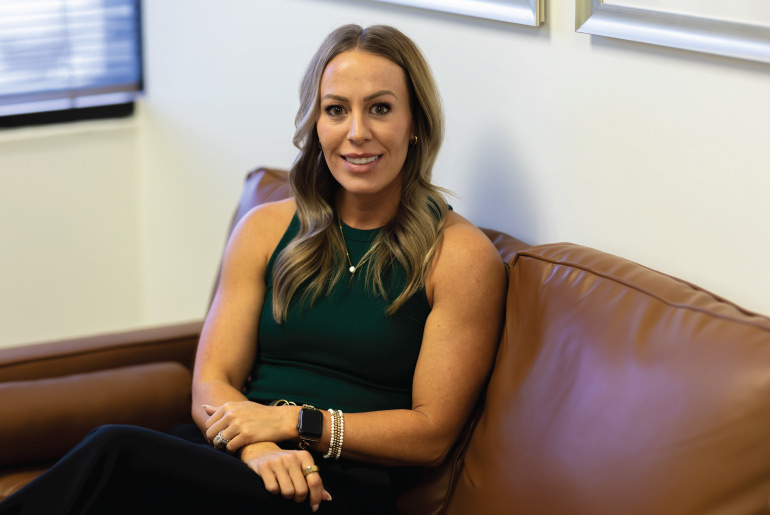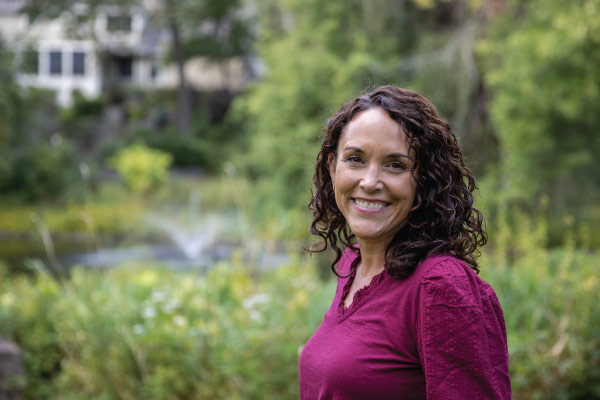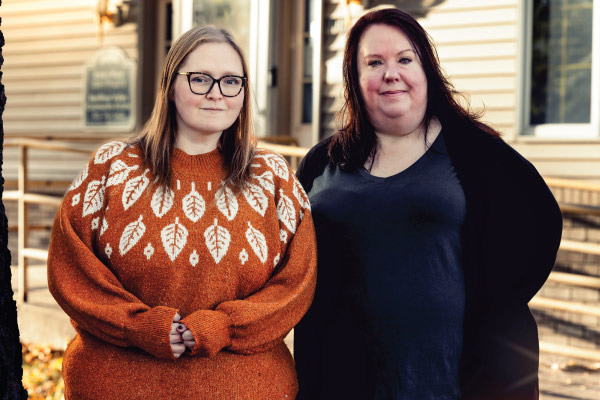Mind Over Media
Holly Essler, ’12, ’15, tackles mental healthcare in a digital world.
As AI evolves and attention spans shrink, Holly Essler, ’12, ’15, founder of Empowering You Therapy in Phoenix, predicts unprecedented mental health challenges in the coming years.
A major driver? Social media, in which sophisticated algorithms target users of all ages.
“It’s alarming what they know and show us. The goal is to keep you on the apps as long as possible,” Holly said. Her practice helps clients develop more intentional social media habits.
While younger generations are often considered the biggest social media users, Holly said older adults aren’t immune. “They tend to be more isolated, so they turn to their phones.”
Holly uses eye movement desensitization reprocessing (EMDR), a technique that connects the brain and body to heal trauma. “We poke and irritate the memory and find other memories come flooding back. We decipher if it’s just a memory or if other things are connected to it.”
She recalled working with a woman facing work stress, relationship struggles, and body image issues. The root went back to her childhood when comments — even from her family — about her muscular swimmer’s shoulders shaped her self-image.
“Her issues went far deeper than just ‘your job is stressful.’ Without looking back, we wouldn’t have made that connection,” Holly said.
Balancing Growth with Boundaries
Holly’s journey to social work began in a UND undergraduate course where she volunteered in the community. “I saw the need for social workers and felt like it was my calling,” she said.
After graduation, she worked in Grand Forks supporting foster care and family services, earned her master’s degree, and became a licensed therapist in 2018.
When her husband accepted a job in Phoenix, Holly struggled to find a practice. “I didn’t fit into the traditional boxes — doing a specific type of therapy with a specific type of client,” she said, which led her to launch Empowering You.
From the start, Holly set boundaries to maintain balance. “Other therapists told me, ‘The right clients will find you,’ and they were right,” she said.
She leads by example. “How I show up in sessions reflects the quality of care I provide. I can’t preach self-care to my clients if I’m not practicing it myself.”
That approach is working. As her practice grows, Holly stays focused on helping clients set boundaries and find balance.



